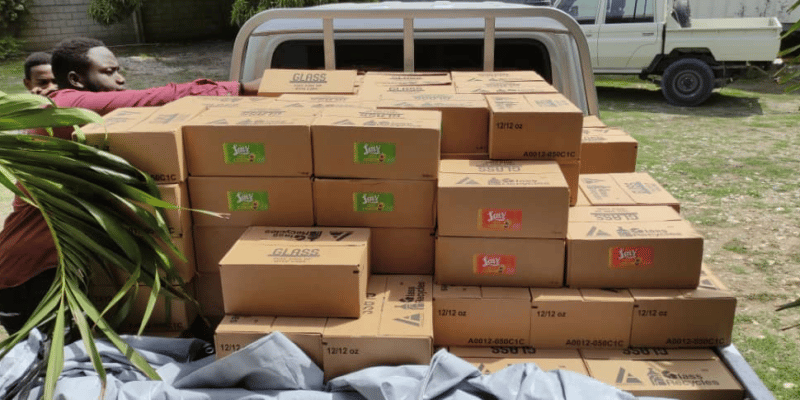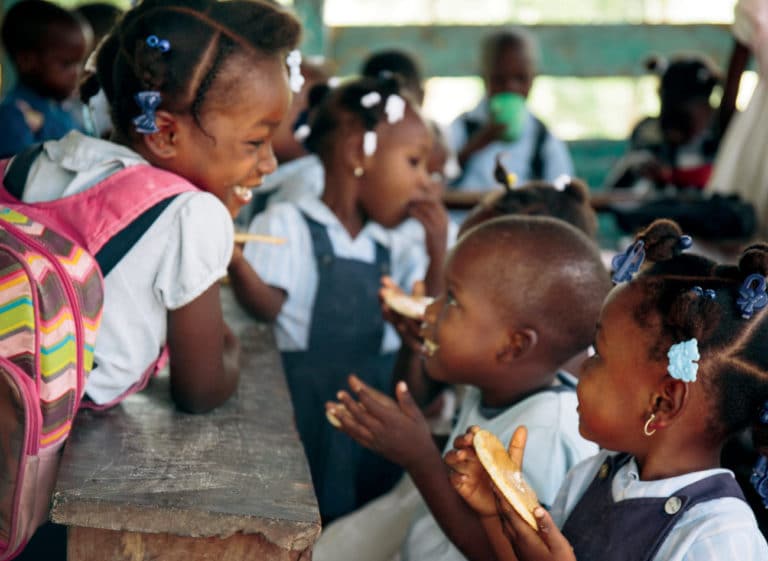At 8:30 a.m. on Saturday, Aug. 14, a magnitude 7.2 earthquake disaster struck the southern peninsula of Haiti. It was a shallow temblor (only 10 km deep), and therefore all the more destructive, bringing down large parts of nearby towns and cities. As of Aug. 18, authorities were reporting more than 2,100 killed and more than 12,200 injured. More than 37,000 homes were destroyed and tens of thousands of residents displaced.
Ever since the 2010 earthquake that devastated the capital region, we have been supporting community-led initiatives and the development of strong alliances among organizations in central and southern Haiti. Eleven years later, in the aftermath of another devastating earthquake, many of our grantees have been using those alliances in a strong, local-led response.
The organizations that can best respond at this urgent moment are those with a long-term commitment to the children and families of local communities. We call on those wanting to help Haiti to support the local networks collaborating to meet the immediate needs of those most affected by this terrible disaster.
HOW OUR GRANTEES ARE RESPONDING:
Several WKKF grantees are responding to the disaster, some directly and some by channeling funds to grassroots organizations. Below is a list of grantees responding:
Acceso has allocated almost 20,000 jars of locally made peanut butter for donation through organizations working in the affected area, and it has been raising funds to purchase more foods to donate.
Build Health International is collaborating with local health providers to assess and repair urgent health care infrastructure and is building a temporary trauma and orthopedic surgery center in the affected area.
FOKAL and Haiti Development Institute (HDI) are both channeling funds to local grassroots largely agricultural organizations responding to the disaster. Among those receiving support from HDI is ACAPE, a WKKF grantee and cooperative leading a consortium of local food producers in southern Haiti. They are providing tents, food kits, hygiene kits, water and first aid in remote and hard-hit areas.
Fonkoze is checking on their more than 13,000 clients in the affected area, and after determining their conditions plan to assist with immediate needs as well as support in getting their businesses back on track.
Haiti Christian Development Fund (HCDF)’s Jubilee Farms is sending a couple of tons of corn and beans to Okay.
Hope for Haiti is providing clean water, wound care and other essential services at its infirmary in Okay. Its short- and long-term response plans are laid out on its website.
KORE, working in the Haiti Local Food Systems Alliance with other WKKF grantees, is donating 36,000 boiled eggs and providing transport for food donated from Alliance members Acceso and HCDF. It is part of ongoing efforts by WKKF grantees to leverage local sources to feed Haiti in times of crisis and in the long run.
St. Boniface Hospital (Health Equity International) is evacuating patients from the earthquake zone to its hospital, where it has put together a team of Haitian doctors specializing in orthopedics and trauma.
Zanmi Lasante/Partners in Health sent Haitian surgeons to join the trauma response team at St. Boniface Hospital. It is also treating people in the field as well as medevacked patients in facilities elsewhere in the country.
If you are seeking ways to support Haiti in the aftermath of the earthquake, please check out the above organizations. They are all longstanding partners of the W.K. Kellogg Foundation.



